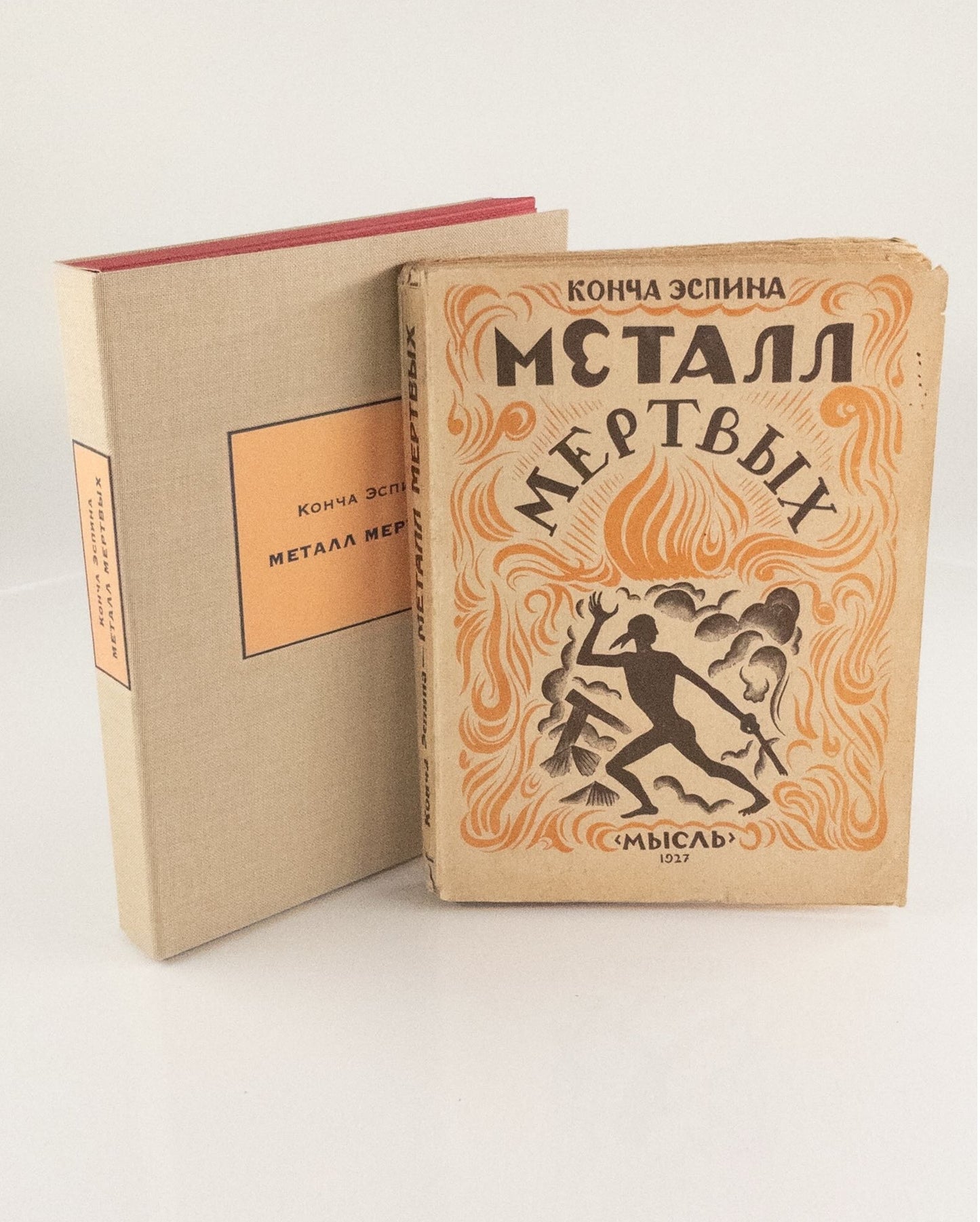Espina, Concha
The Metal of the Dead. The only Russian translation.
The Metal of the Dead. The only Russian translation.
Couldn't load pickup availability
Espina, Concha [The Metal of the Dead / El Metal de los Muertos]. Metall Mertvykh.
Translation from Spanish by T. Gertsenshtein.
Cover by P. Snopkov.
Leningrad, “ Mysl’ “, 1927.
12mo, 255, [1] pp.
In original pictorial wrappers and modern clamshell box.
Near very good condition, light wear to wrappers, small chip to upper edge of front cover, small losses to spine, owner signature to title page.
The only Russian translation. Second and last Espina's Russian book. One of 5 000 copies published.
Concha Espina (1869/77/79–1955), renowned as one of Spain's leading novelists, is often regarded as the first Spanish woman writer to earn her livelihood exclusively through her writings. She achieved tremendous popularity and was nominated for the Nobel Prize on multiple occasions. Her novels were translated into various languages, including English, German, Swedish, French, Italian, and Russian. Espina is credited with pioneering a new genre in Spain known as the 'novela intelectual', characterized by its blend of sentiment and psychological realism.
In 1926, her first work in Russian, a translation of 'La Esfinge Maragata' (1914), was published. The following year saw the Russian release of 'El Metal de los Muertos' ('The Metal of the Dead'; 1920), one of her most successful works. This novel delves into the lives of Spanish miners in Rio Tinto who fought against foreign exploitation. It was often likened to Emile Zola's 'Germinal' and received high praise from the Spanish novelist and philosopher Miguel de Unamuno. 'The Metal of the Dead' was the second and final book by Concha Espina to be translated into Russian.
Soviet critics recognized Espina as one of the most significant contemporary Spanish writers, lauding her talent for predominantly 'psychological novels rooted in autobiographical material, particularly her skill in crafting female characters'.
Both of Espina's books in Russian were translated by Tatiana Gertsenshtein (1882–1972), a notable female translator renowned for her translations from English, Italian, Portuguese, and Spanish, which included works by Vicente Blasco Ibáñez, Eça de Queiroz, Franco Sacchetti, and Antonio Fogazzaro.
The cover design was created by Petr Snopkov (1900–1942), a graphic and theater artist who studied at VKhUTEMAS/VKhUTEIN alongside Alisa Poret and was married to her during the 1930s. In 1941, he was arrested and subsequently perished in a labor camp.
We couldn’t trace any copy of this edition in the USA via OCLC. The one copy of this edition is at the National Library of Spain.








